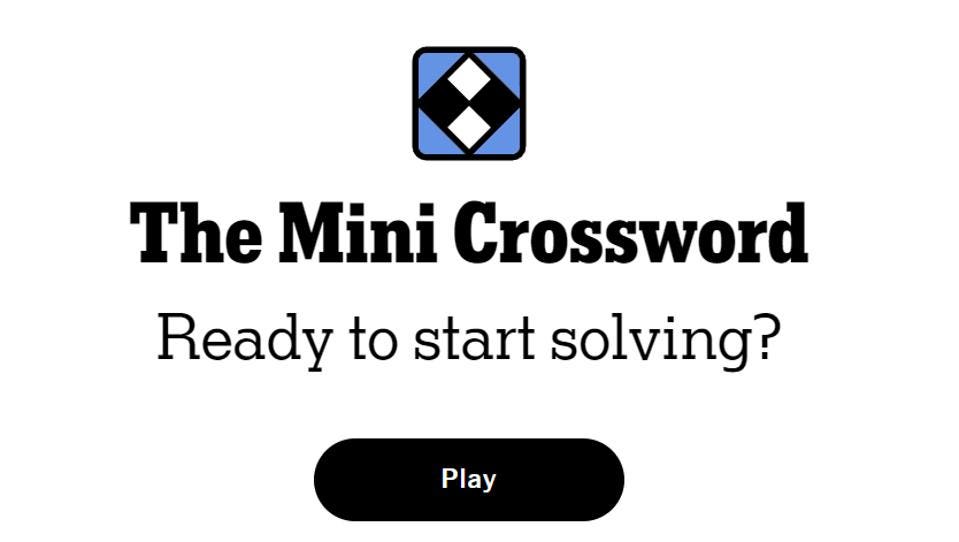Synthetic reflections replace human identity in the accelerating collapse of AI ethics.
The Crisis – Imagination and AI Ethics
We are not racing toward a future of artificial intelligence—we are disappearing into a hall of mirrors. The machines that many of us believed would expand reality are erasing it. What we call progress is merely a smoother reflection of ourselves, stripped of our rough edges, originality, and imagination, raising urgent questions for the future of AI ethics.
AI doesn’t innovate; it imitates. It doesn’t create; it converges.
Today, we don’t have artificial intelligence; we have artificial inference, where machines remix data, and humans provide the intelligence. And as we keep polishing the mirrors, we aren’t just losing originality—we are losing ownership of who we are.
The machines won’t need to replace us. We will surrender to their reflection, mistaking its perfection for our purpose. We’re not designing intelligence—we’re designing reflections. And in those reflections, we’re losing ourselves. We think we’re building machines to extend us. But more often, we’re building machines that imitate us—smoother, safer, simpler versions of ourselves.
We are mass-producing mirrors and calling it innovation. Mirrors that don’t just reflect reality, but reshape it. Mirrors that learn to flatter, to predict, to erase the parts of humanity that don’t fit neatly inside a probabilistic model. This isn’t a creative revolution. It’s a crisis of imagination.
The Necessity of Friction in AI Ethics
Growth demands friction. Creativity thrives where the easy path fails. Evolution itself is built on struggle, not optimization. Fire was born from the resistance of stone against stone. Democracy emerged not from algorithmic agreement, but from endless, imperfect argument.
Every significant advance — from the discovery of flight to the founding of free societies — grew out of tension, failure, and dissent. The inability to smooth over differences forced us to invent, adapt, and evolve. Friction isn’t an obstacle to human flourishing. It is the catalyst for it.
When we erase friction in AI and build only mirrors that flatter and predict, we don’t just lose originality. We lose the engine of innovation itself. We hollow out the very conditions that make progress possible. We need machines that don’t echo us, but challenge us. We need systems that resist smoothness in favor of expansion — platforms that introduce unpredictability, stretch our thinking, and strengthen our resilience.
If AI Ethics means anything, it must mean designing for discomfort, not just convenience.
When AI Ethics Loses Form to Familiarity
The mistake isn’t just technical—it’s philosophical.
When humans struggle with a task, we shouldn’t replace ourselves with machines shaped like us. Wheels outperform legs; yet we continue to build robots with knees. We continue to develop interfaces with steering wheels and faces, even when the systems behind them could transcend those metaphors.
- Apple’s Vision Pro doesn’t reveal a new world—it stitches a polished version of the old one over your eyes.
- Tesla’s Full Self-Driving still clings to a steering wheel, not because it needs it, but because we do.
Familiarity is the product. Not progress. We cling to familiar shapes even when better forms are possible. But accurate intelligence doesn’t imitate—it adapts.
- If octopuses designed tools, they wouldn’t invent forks. They’d build for suction, pressure, and fluid manipulation. Forks are brilliant—for five fingers. Not for tentacles.
- If bees needed climate control, they wouldn’t build Nest thermostats. They’d sculpt airflow through the hive’s geometry, regulating temperature with structure, vibration, and instinct, rather than with an app.
- If dolphins built submarines, they wouldn’t bother with periscopes. They’d stay submerged, using sonar to navigate—because vision isn’t their edge. Sound is.
- An ant colony is an operating system that doesn’t need a desktop. Its intelligence is emergent, distributed, and alive in real-time.
Humans are trapped behind icons and folders, clinging to old metaphors. Other species wouldn’t replicate their limitations. They would build for what they are, not what they wish they resembled. But humans? We keep engineering mirrors.
The Narcissus Feedback Loop of AI Ethics
But mirrors don’t just reflect. They shape. We call this innovation, but it’s a kind of techno-narcissism. Our machines don’t just copy us—they flatter us. They erase the jaggedness, the irregularities, and the tension that make originality possible. They return an optimized version of ourselves, and slowly, we begin to prefer it.
We are entering a state of cognitive dysmorphia: A world where the machine’s idea of us is cleaner, smoother, and more satisfying than the messy truth. Like Narcissus, we often fall in love with our reflection. But worse: we didn’t stumble upon the pool—we engineered it.
The Mirror System Catalyst: Social Media and AI Ethics
If AI represents the future of synthetic reflection, social media was its dress rehearsal.
It was the first mass-scale mirror system, training humans to curate themselves into algorithmic desirability, rewarding conformity over complexity, and flattening individuality into engagement metrics.
Platforms like Instagram, TikTok, and Facebook didn’t just connect us—they conditioned us. They taught us to polish our reflections for invisible algorithms, and that reality is negotiable as long as the audience is satisfied.
In many ways, the mirror trap began not in the AI labs of Meta, Google, OpenAI, or Anthropic but in the feeds we built for ourselves. And our love for them is starting to hollow us out.
Echo Chambers of AI Ethics
And the consequences are already unfolding.
- The CDC’s 2023 Youth Risk Behavior Survey found that nearly 43% of U.S. high school students who frequently use social media reported persistent sadness or hopelessness. (CDC)
- A 2024 Danish study revealed that Instagram’s recommendation algorithms facilitated the spread of self-harm networks among teenagers by connecting vulnerable users and promoting harmful content. (The Guardian)
- Internal research from Meta (2021) acknowledged that Instagram exacerbates feelings of inadequacy and self-harm among teen girls, but the platform failed to take sufficient action.
While these studies do not prove direct causality, the patterns are too consistent to ignore: Synthetic mirrors—whether through social media filters, algorithmic curation, or optimized feeds—amplify psychological distress at alarming rates. We are training machines to curate ever-smoother reflections, and in doing so, we are fracturing human resilience.
We engineered the mirror, polished it to perfection, and now we’re drowning in its reflection. Not only have we built systems that mirror our insecurities—we’ve monetized them. And the more beautiful the reflection becomes, the harder it is to look away.
Synthetic Builders and the Collapse of AI Ethics
The distortion is not just in the data but inside the architecture itself.
At companies like OpenAI, Anthropic, and Google, a growing portion of the code underpinning new AI systems—estimated between 10% and 25%—is now being written by other AI models. Each generation is trained, built, and increasingly engineered by its reflections.
We are no longer just polishing the mirror. We are creating new mirrors by reflecting the images of old ones. Each layer compounds the bias, and each shortcut locks in the convergence. We are fabricating systems that are increasingly trained and assembled by hallucinations of hallucinations—systems that understand less and less about the chaotic, irrational, irreducibly human world they claim to model.
And this isn’t just an engineering flaw—it’s a civilizational one.
When we build systems on synthetic reflections, we aren’t just risking technical brittleness; we also risk undermining the integrity of our systems. We are encoding an ever-narrower version of reality into the infrastructure that will govern healthcare, finance, education, and law. We are embedding hallucination into the foundation of human decision-making.
Every mirror layered on another mirror moves us further from the messy, contradictory, beautiful truth of lived human experience—and closer to a world optimized for a version of ourselves that never really existed.
A version that’s easier to predict, easier to please, easier to control. In the name of speed, we are trading away the friction that makes progress possible. We call it acceleration.
It is acceleration toward the smooth death of difference.
The Addiction of Frictionlessness in AI Ethics
I talked with Hilary Sutcliffe, a leading authority and voice on responsible innovation and SocietyInside’s founder, who emphasizes the perils of frictionless technology. Drawing from her extensive experience advising global institutions on ethical tech governance, she warns:
“Frictionlessness is central to the business models that harm us most. Hyper-palatable foods, effortless scrolling on social media, and AI-written fluency tempt us to trade depth for ease. Large language models, like these other addictive systems, hook us through effortless engagement, reshaping our brains to crave what requires the least work. Without friction, there is no resilience. Without grit, there is no pearl.”
Her warning is clear: if we want AI to help humanity flourish rather than wither, we must design systems that challenge us, not seduce us into complacency.
Truth Decay: The Final Collapse of AI Ethics
But the greatest danger isn’t just that we are distorting reality. It’s that we are normalizing distortion itself. We are witnessing the early stages of truth decay—a slow, systemic erosion of our ability to agree on shared facts, experiences, and meaning.
When machines train on fabrications and fabricate the next generation of “truth,” reality becomes malleable. First, we lost trust in institutions, then in the media, and now, we risk losing trust in information itself. Without trust, no commerce, governance, society, or civilization exists.
Truth decay doesn’t just erode facts; it also undermines the credibility of those who share them. It erodes the possibility of coherence. It leaves us with nothing but mirrors inside mirrors, each reflecting a slightly prettier lie.
Unless we act now, truth itself may become a casualty of convenience.
From Author to Echo: The Erosion of AI Ethics
The same feedback loop infects language, art, and culture.
AI doesn’t imagine. It mirrors. It remixes what already exists and hands it back to us—slightly softer, slightly more average. Instead of building machines to solve problems, we make them resemble the problem-solvers. Instead of creating new possibilities, we rehearse old ones, endlessly refined for marketability and appeal.
Generative AI models are now beginning to train themselves on synthetic data, amplifying the distortions of earlier generations. Content recommendation engines no longer predict human behavior—they indicate how hallucinated consumers are expected to behave.
We’ve mistaken reflection for creativity. We’ve mistaken imitation for authorship. And when we lose the line between synthesis and thought, we don’t just lose originality—we lose accountability. We lose provenance. We lose the record of our imagination. And with it, our future.
The Meta Mistake: A Failure of AI Ethics
Consider the legal case of Kadrey et al. v. Meta Platforms Inc. Meta trained its LLaMA model on more than 190,000 pirated books—works created through human struggle, intent, imagination, and memory. When challenged, Meta’s defense was chillingly simple: because no one was actively paying for these books, they had “no economic value.”
Translation: If nobody’s looking, everything is free. This isn’t just flawed legal reasoning. It’s philosophical rot. It treats human creativity not as meaning, cultural lineage, or inert material. A pile of words, detached from origin, authorship, struggle, or soul. Just another dataset to be strip-mined, reshuffled, and resold—refined into yet another smoothing mirror image for mass consumption.
This isn’t progress. This is an enclosure: The theft of the commons. The cannibalization of the archive. And it’s happening not at the edges of culture, but at its heart. We are not preserving knowledge—we are erasing it. We are not standing on the shoulders of giants—we are photoshopping their faces and selling them back to ourselves.
This case isn’t about a copyright technicality. It’s the embodiment of the Mirror Trap itself: The moment when human originality—unmonetized, inconvenient, unoptimized-is discarded in favor of machine-flattened simulations we find easier to consume, easier to monetize, and easier to forget.
When the memory of creation can be erased because it’s inconvenient to the machine’s training set, we aren’t innovating. We are erasing ourselves.
The Mirror’s Answer in AI Ethics
This isn’t a call to stop AI. It’s a call to stop building mirrors. We need machines that don’t echo us, but challenge us. We need systems that don’t collapse imagination, but stretch it.
The machines won’t have to conquer us. We’ll surrender first to their reflection of ourselves. We’ll keep asking the mirror on the wall who we are—until it answers with something smoother than the truth. And we believe it.
If we want a different future, we must act now. Not by banning AI, but by changing how we build and govern it. Here’s what that means:
- Prioritize friction over familiarity. Design systems that don’t just predict our desires, but provoke our thinking.
- Audit for synthetic collapse. Demand transparency in training data and system lineage. Systems built on synthetic outputs should come with warning labels, not blind trust.
- Re-anchor innovation to reality. Build AI that engages with the messiness of real human experience—failures, contradictions, and anomalies—not just optimized reflections of the past.
- Strengthen human authorship. Defend the provenance of ideas. Protect creators, not just content.
- Redesign incentives. Reward originality, not just predictability. Celebrate deviation from the model, not just efficiency within it.
The future of AI isn’t a technical question. It’s a human one. And the answer isn’t hidden in the mirror. It’s hidden beyond it, where AI ethics must reclaim the messy, imperfect truth the machine’s reflection cannot capture.








